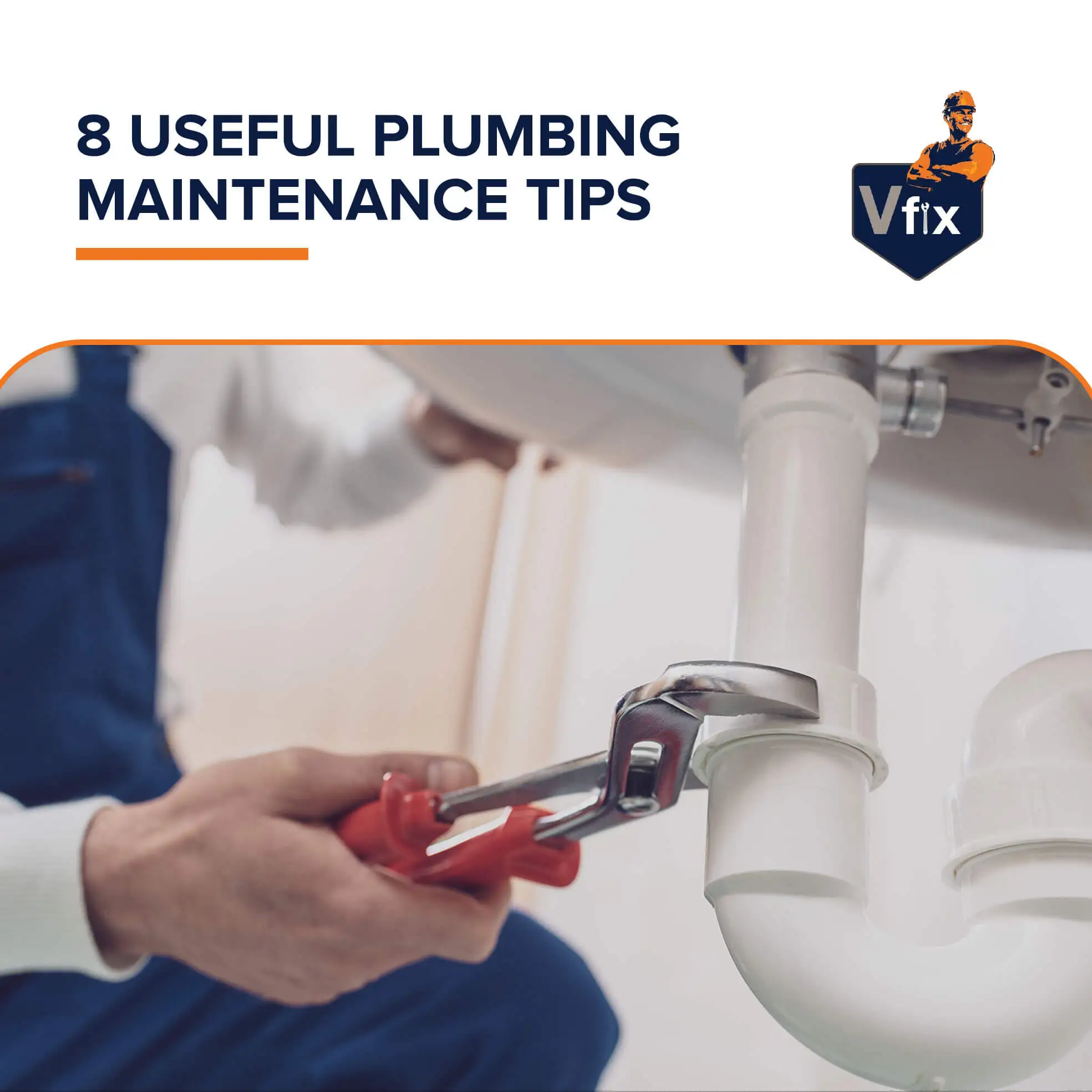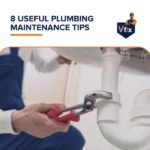
Proper plumbing maintenance keeps drains flowing, pipes clear, and water flowing on demand all while preventing major leaks or damage. By making small repairs and improvements proactively, homeowners can avoid inconvenient and costly plumbing emergencies. This overview covers 8 useful tips to incorporate into your home plumbing maintenance routine.
Inspect Pipes and Fittings
Visually inspect exposed water pipes and fittings around your home periodically to check for problems developing. Look for leaks, drips or condensation which indicate loose joints or cracks that need sealing. Check under sinks for signs of corrosion around joints that may lead to leaks. Replace any supply lines older than 10 years preventively. Periodic inspections help catch issues early before major damages occur.
Test Water Pressure
At least yearly, test water pressure at several faucets around your home. Pressure above 80 psi stresses plumbing and causes leaks over time, while pressure below 40 psi results in inadequate flow. Install a pressure regulator if pressure exceeds 80 psi. For low pressure, inspect accessible pipes for blockages. Consistent pressure testing ensures your plumbing components operate in a safe range.
Drain and Flush Hot Water Heater
Flushing the water heater annually removes sediment that can collect at the bottom of the tank over time, reducing capacity and heating efficiency. Open the tank drain valve and attach a garden hose to safely discard flushed water. Allowing several gallons to drain removes debris. Flushing extends the life of your water heater and saves energy.
Pour Cleaning Mixes Down Drains
To keep drains fully clear and prevent clogs, pour a mix of baking soda and vinegar or citrus peels down each drain monthly. Let it sit for 10-15 minutes before rinsing with hot water. The bubbling reaction dissolves grime buildup. This simple monthly treatment keeps drains clear and free-flowing.
Upgrade Old Plumbing Fixtures
Swap out outdated sinks, faucets, shower heads and toilets with modern water-efficient fixtures. Newer fixtures not only look better, but they use less water which saves money while also reducing strain on supply lines. Modern toilets cut water usage significantly. Bathroom renovations provide an opportunity to bring plumbing up-to-date.
Insulate Pipes in Unheated Areas
Cover exposed water pipes in unheated areas like basements, garages and attics with pre-split insulating foam tubes. This prevents freezing in winter which can rupture pipes. Insulation also reduces condensation buildup. Properly insulating pipes saves costly repairs and water losses. Professional plumbing services in Dubai can assist with identifying areas needing insulation.
Install Heat Trace Cables
For water pipes especially vulnerable to freezing, have heat trace cables professionally installed. These electrical cables apply just enough warmth to prevent freezing. They often get installed on pipes located close to cold outside walls, unheated garages, or other frigid areas. Traced pipes remain safe even in sub-zero temperatures.
Have an Annual Plumbing Inspection
Hire professional plumbers to conduct an annual inspection identifying potential problems and any needed upgrades. A comprehensive inspection checks pipe integrity, water heater health, flow rate, fixture functionality, and drain blockages. Technicians can perform repairs and improvements to keep plumbing in peak condition. Annual inspections help prevent unexpected emergencies.
By incorporating these plumbing maintenance tips into regular home care routines, costly plumbing headaches can be avoided. An ounce of plumbing prevention is worth a pound of cure when it comes to avoiding leaks, floods, and costly emergency repairs. With proactive maintenance and professional assistance when needed, home plumbing will provide years of reliable service.






